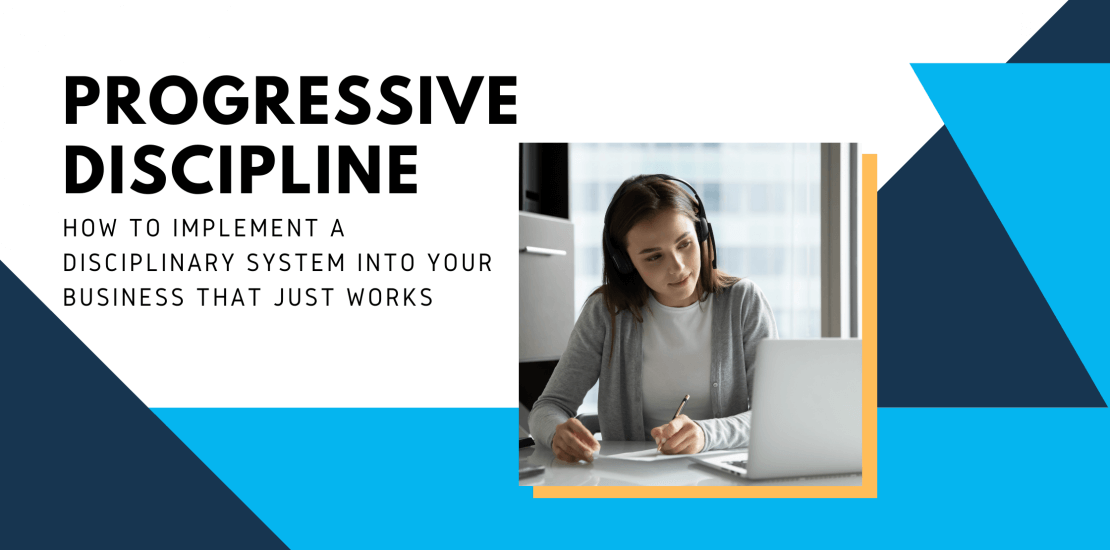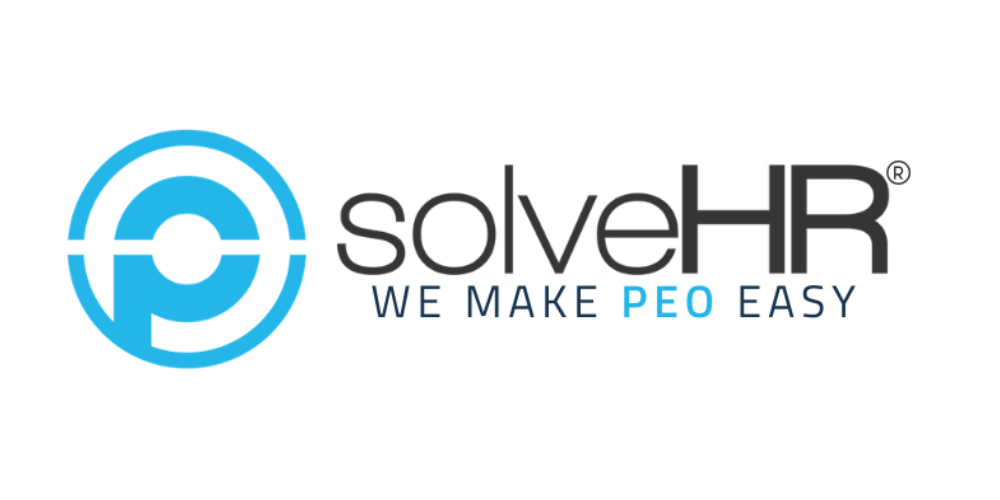- 03/23/2021
- Posted by: Winter Green-Ike
- Categories: Employment Law, Training & Development

(This post is based on our “Trending Labor Law Topics for 2021” Webinar series)
How should you react when an employee violates one of your company’s policies? What measures should be taken? How can you remain consistent across every employee to ensure that you’re being fair? You’ve probably asked some of these questions as your business has begun to grow larger and you’re starting to handle more employees.
As your company grows bigger you need to start thinking about how you should begin to implement a disciplinary system that can give you a graduated range of responses for employee performance or conduct issues. A progressive discipline system can come in handy at this point, to help you better manage your employees’ conduct and performance in the workplace.
Most large companies use some form of progressive discipline, but no matter what it’s called, the disciplinary system that you use should be appropriate and proportionate to your employee’s conduct. This week we’ll be looking at what exactly is a progressive discipline system, why you should implement one, and how you go about implementing it into your business.
What Is At-Will Employment?
Before we talk about progressive discipline, we should discuss the elephant in the room that is at-will employment. At-will employment is a U.S. employers’ ability to dismiss an employee for any reason, and without warning, as long as the reason is not illegal. Employment relationships are presumed to at-will in all U.S. states except Montana.
While at-will employment is the law of the land for the U.S., it isn’t a blank check for employers to terminate employees on a whim. While yes, you can terminate an employee for whatever reason, the Supreme Court has outlined that an employer can’t terminate an employee for discrimination, harassment, retaliation, etc., and an employee can still contest a termination in employment court causing your business money in legal fees.
While you can always fall back on at-will, it’s better to have a progressive discipline system in place to make the termination of employees easier in the long run. Having proper documentation on why you terminated an employee based on guidelines you set makes it much easier to defend if the employee were to challenge your decision in court.
What is Progressive Discipline?
Progressive discipline is a popular disciplinary system that companies use to address unsatisfactory work-related relations. This approach allows you to make measured responses to an employee’s behavior or performance. The main purpose of progressive discipline is to allow employees to have ample room to correct their behavior before more severe disciplinary action is taken and give you an avenue to respond to such behavior or performance depending on the frequency and severity of the issue.
How to Implement
Any progressive discipline policy has a clear progression of disciplinary actions that take place when an employee violates work rules. Every company practices progressive discipline in its own ways, but in general, the most common steps that you can find across all businesses are:
- Verbal Warning- A verbal warning is a more informal disciplinary action. It serves to make the employee aware that their conduct or performance is unsatisfactory and gives them an opportunity to correct their behavior before further action.
- Written Warning- The written warning is a more formal disciplinary action that is issued if the verbal warning does not result in a positive change. The written warning will include all pertinent details to the employee’s infraction and will also serve as an action plan for the employee’s improvement. Usually, for written, warnings the employer and employee sign the warning and it goes into the employee’s personal file for future documentation.
- Probation- is the next disciplinary step where a supervisor will closely watch the actions of the employee to ensure they are attempting to correct their work. Probation usually lasts as long as the manager or supervisor deems it appropriate, and will often last 30, 60, or 90 days.
- Suspension- if the employee still fails to make changes, then suspension is the next disciplinary step. Suspensions, just like probations, last as long as the manager deems it appropriate for the employee to reflect on their actions or performance and make appropriate changes.
- Termination- After repeated violations and failure to correct behavior or performance, termination is the final disciplinary step. It should be the last resort in the progressive discipline system but is sometimes unavoidable if the employee continues to behave or perform poorly.
Some infractions may warrant skipping early steps depending on the severity of the action, but overall, the progressive disciplinary system serves to gradually respond to employee infractions with measured disciplinary action.
No matter how you choose to implement a progressive discipline system into your existing business structure, remember to document every disciplinary action taken against an employee for your records. You never know when you might need them for the future, and it can serve as evidence if you ever find yourself in an employment hearing against a disgruntled former employee.
As your business grows, you need to create a company culture that respects your employees and encourages honest and hard work. Setting the bar high and not tolerating disrespectful workplace behavior like harassment, discrimination, prejudice, and bullying is the greatest step towards creating a workplace that benefits all your employees.
Looking to expand your business but bogged down by your human resource needs? Need to begin thinking about how to start expanding your business? SolveHR is here to help your business by offering you our team of HR experts so you can focus on what matters—Growing your business!
Subscribe to receive all our blogs
Written by: Matthew Muriel
Meet Matthew! Matthew is our content writer and has been working with us for a year. He enjoys working for SolveHR because it allows him to practice his copywriting and allows him to build experience in his fledgling career. Matthew studied at the University of Texas at San Antonio and earned his degree in English with a concentration in Professional Writing. He values learning new processes in the HR industry and then conveying those ideas to the company’s clients. When he isn’t working, he enjoys reading nonfiction, with his favorite book that he recently read being The Gene by Siddhartha Mukherjee. If he could go anywhere in the world he would travel across the United States and visit all of the national parks.

